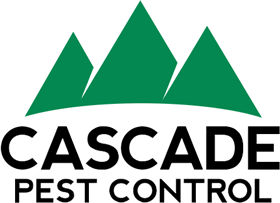Author: Kurt Treftz, Cascade Pest Control
Termites: Insidious, persistent, ravenous, destructive. There aren’t many positive adjectives to use when discussing this pernicious household pest. They can strike fear into any homeowner’s heart. Each year termites cause billions (that’s with a “B”) worth of damage to buildings and crops.
So, if you’ve treated for termites, you might be wondering “am I safe”? Is this one-and-done? Can termites return after a termite treatment? Sorry, friends, the answer is “yes”. Termites are notoriously difficult to eradicate and have a tendency to pop up again, unless you are protective and diligent.
There are a number of factors that can impact how likely you are to experience a recurrence / reinfestation: type of termite, extent of the infestation, type of treatment, and preventative maintenance. All of these can play a role in how effectively you can eliminate termites.
Type of Termites
Washington State is home to two types of termites: subterranean and dampwood. Both can eat through wood and cause structural damage. However, the subterranean termite is more dangerous to man-made structures.
Dampwood termites, like their name indicates, need moisture in the wood to survive. They are likely to be found in damp, sometimes rotting, vegetation. They are larger than their subterranean cousins and tend to have smaller colonies. Because of their need for a damp environment, dampwood termites are not quite as aggressive in attacking man-made structures unless they have a source of water.
Subterranean termites are the bigger culprit in damage to structures. Because they live under the soil and proceed to tunnel into houses, they can be extremely difficult to identify until significant damage is done.
Extent of Termite Infestation
How big the termite infestation is can also play a role in eradicating and preventing these pests. If you are facing a large colony – or multiple colonies – it is going to be more difficult to remove and prevent these pests. Once your house has been targeted by termites, it is vulnerable to a reinfestation. That doesn’t mean that they WILL come back, only that they are LIKELY to return.
Type of Termite Treatment
Depending on the types of termites and your needs, there are a number of termite treatment options.
- Fumigating (tenting) a house is used for drywood termites who can be in any exposed wood in the house, but these termites aren’t common in Washington.
- Termite Bait stations are often used for subterranean and dampwood termites. The termites take the bait and carry it back to the colony. This option works well, but there is a chance that some termites survive and then they are quick to repopulate. It is important to check a few weeks after treatment to see if it was effective.
- Liquid termite treatments are also common to kill and prevent an infestation. A trench is dug around your property and a chemical barrier is applied. This solution can last up to five years, but you must still remain diligent as a “weak link” in the barrier may allow termites to return.
Termite Preventative Maintenance
It is important to know the reasons that termites return so that you can be proactive in deterring them and keeping up with a termite preventative maintenance schedule.
Termites are apt to return if. . .
- There is any wood contacting the ground
Particularly subterranean termites will see any wood to ground contact as a highway into your home. And they will be ready to feast on the buffet you are offering them. Make sure that you don’t have any wood, particularly untreated wood, in contact with the ground.
- Mulch/bushes/landscaping is near to or touching your house
In addition to the wood that might be part of your structure, also make sure that landscaping wood is kept at least 15 inches away from your home’s foundation. Mulch can be the perfect breeding ground for termites: moist, warm, abundant food source. Also, keep firewood stacked away from your home. Make sure to remove rotting and decaying matter from around your home.
- You have leaks or moisture problems in your home
Another huge attraction for termites is moisture. So make sure you monitor your house for leaks and fix them quickly. Dampness will tempt termites to return, especially dampwood termites.
Stay proactive! Correct the above problems and monitor your house for evidence of an infestation. If you catch it quickly, you are much more likely to get ahead of the problem. And remember you don’t need to do it alone! Contact Cascade Pest Control for all your termite extermination needs.
